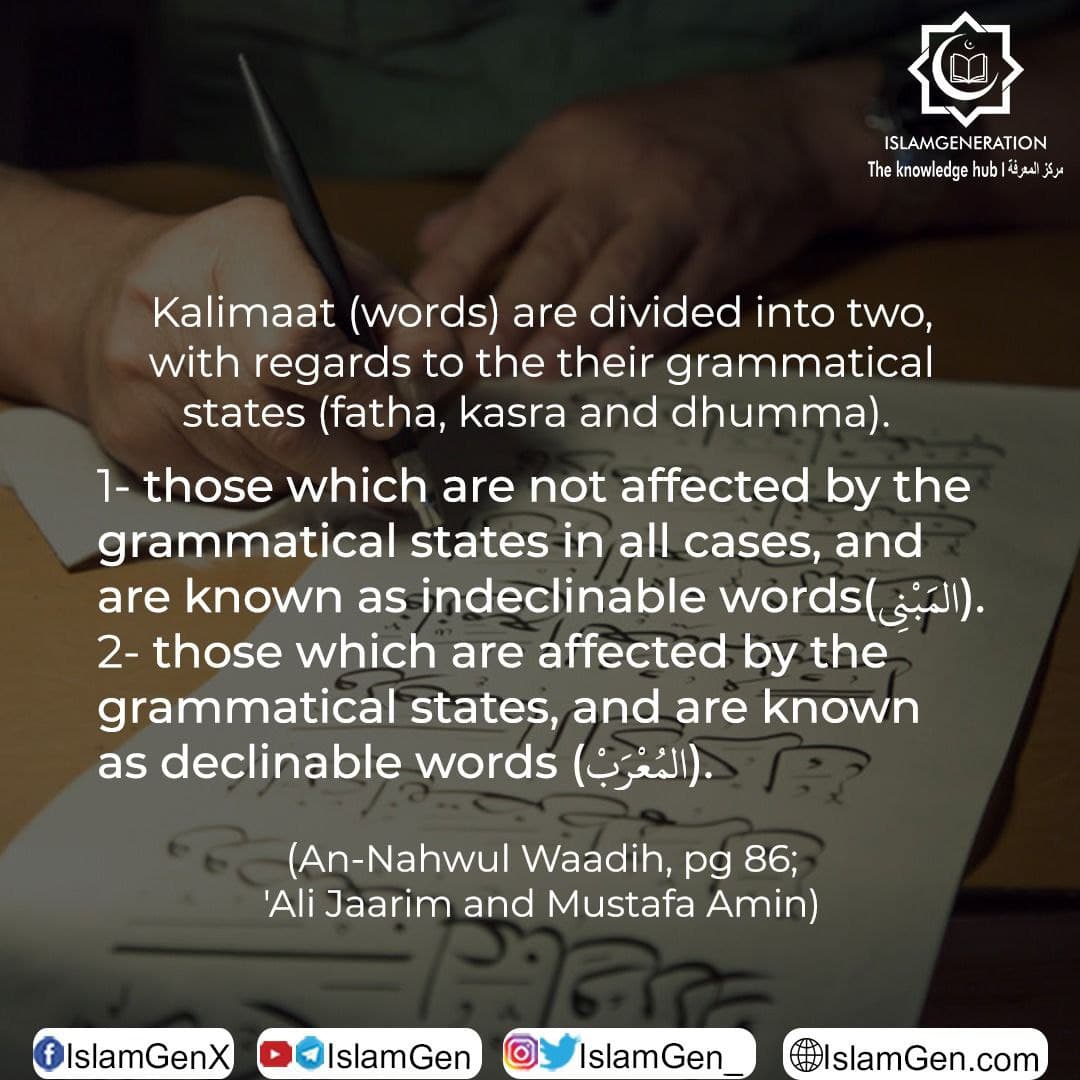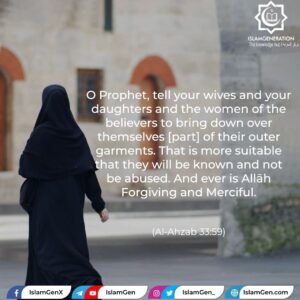﷽
EPISODE 3 – INDECLINABLE AND DECLINABLE WORDS
Indeclinable and declinable words are known as Al-mabniyy wal-mu’rab respectively (المَبْنِي والمُعْرَبْ).
Kalimaat (words) are divided into two, with regards to their grammatical states (fatha, kasra and dhumma).
1- Those which are not affected by the grammatical states in all cases are known as the indeclinable words (المَبْنِي).
2- Those which are affected by the grammatical states are known as the declinable words (المُعْرَبْ).
Note:
- All huruf are non-declinable (huruf are words that do not make sense on their own, unless they are included in a sentence)
- All fi’l Al-Madiyy (past tense) and fi’l Al-Amr (imperative tense) are non-declinable.
Examples
١. ذَبَحَ الجَزَّارُ شَاةَ
(Dhabahal jazzaru shaata)
- The butcher slaughtered a sheep
٢. هَلْ ذَبَحَ الجَزَّارُ شَاةَ؟
(Hal dhabahal jazzaru shaata?)
- Did the butcher slaughter a sheep? ٣. جَنَى الفَلَّاحُ القُطْنَ
(Janal fallahul qutna) - The farmer reaped the cotton
٤. تُصْنَعُ المَلَابِسَ مِنَ القُطْنِ
Tusna’ul malabis minal qutni)
- Clothes are made from cotton.
If you look at the word (ذَبَحَ) in first two examples, you will notice that the grammatical state of the last letter remains the same in both examples (i.e fatha). The words that have their grammatical states remain the same in all cases are huruf, past tenses and imperative tenses. ذَبَحَ is a past tense.
If you look at the word (القُطْن) in the last two sentences, you will see that the grammatical states of the last letter changes (i.e from fatha to kasra) with the changing of the position of the word in each sentence.
To be continued إن شاء الله
==============================
🕋 ISLAM GENERATION DA’WAH GROUP
For more Islamic reminders, check out:
WhatsApp: https://chat.whatsapp.com/CzmvSHqSpF0Io80ofMD6c8
Telegram: https://t.me/IslamGen
Twitter: https://twitter.com/IslamGen_
Instagram: https://instagram.com/IslamGen_
YouTube: https://youtube.com/IslamGen
Website: https://www.IslamGen.com
Facebook: https://facebook.com/IslamGenX





